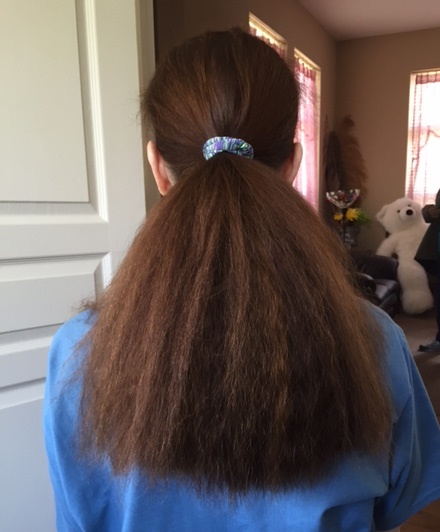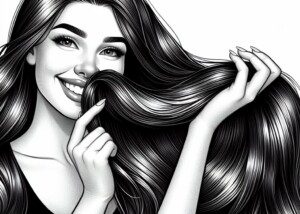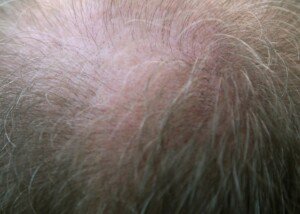
Here’s the explanation for why hair has a NATURAL scent or fragrance, rather than what causes a BAD smell.
This isn’t a “Why does my hair smell bad?” article. It’s a “What gives hair its natural smell?” article.
I asked this question to Dr. Robert Dorin, DO, NYC-based hair care expert and restoration specialist.
The Answer to What Gives Hair Its Natural Scent
“The scent that a human can detect is a result of the natural oils that our sebaceous glands secrete on the scalp and hair shaft itself, along with natural surface bacteria and perspiration,” explains Dr. Dorin.
This is why, no matter what shampoo or conditioner you use (they come with a variety of fragrances), your hair will essentially smell the same.
Right after a shampoo, the fragrance of the product will dominate or superimpose upon your hair’s natural smell.
Sniff your hair after a shampoo, when it’s dry, and you’ll still be able to detect its natural smell, but with the juxtaposition of the product’s fragrance. Next day, this superimposition won’t be as strong.
At some point (unless you shampoo daily), your hair’s smell will be 100 percent from the natural oils (plus surface bacteria/perspiration).
Some people think that hair’s natural smell comes from products you put on it.
However, as the products’ fragrance wears off, your hair’s natural scent always returns to the same smell.
I began noticing this myself with my hair when I was about 11 years old. It always has the same scent after the shampooing wears off, though fresh after a shampoo, I can detect the scent (from the natural oils) mixed in with the shampoo/conditioner.
Intuitively I’ve always known that “it’s from the natural oils.”
The natural scent varies in strength. Some days it’s stronger than others, and I can often smell it when I’m just sitting still at my computer or lying in bed.
Your hair’s natural scent, from its oils, should NOT be bad.

Freepik
When your scalp is healthy, free of a skin disease or infection, your hair’s natural smell should actually be pleasant. I describe mine as sweet.
Like fingerprints, the natural scent of one’s hair from its oils is unique.
If we had the noses of dogs, we’d be able to differentiate among a million heads of hair!
What goes on under the skin in the scalp isn’t the same as with the armpits, as far as causes of odor, which is why your scalp—even when you haven’t washed your hair for a while and are perspiring—won’t smell like your underarms.
But have you ever sniffed other peoples’ hair?
Some women sniff their young children’s hair, enjoying the result.
I once read of a woman who had no choice but to inhale her young son’s hair as they huddled squeezed together in the basement during a tornado. She described it as “sweet.”
I’ve sniffed boyfriends’ hair, and it was always a nice scent—from the natural oils, not from shampoos and other products.
The natural scent of your hair should be a fragrance, not an odor.
If it’s an “odor,” then there’s either a fungal infection, dermatitis or an influx of environmental particulates (like smoke, cooking fumes) adhering to hair shafts, accumulating dirt, grime and dead skin cells—and causing natural bacteria to proliferate and feed off of this accumulation.
But if we’re talking just the natural oil production of the sebaceous glands (the oil is called sebum), this should actually be a GOOD smell.
Natural oils are essential for good scalp health. The oil production begins beneath the skin surface. Each hair follicle has a sebaceous gland attached to it.
The oil gets onto the hair shaft, making its way above the skin surface.
The sebum makes its way down hair shafts when you run your fingers through your hair, rub or scratch your scalp, and especially when you brush or comb your hair; the natural oils get “spread” down the shafts, which is why your hair emits a sweet natural scent even at the tips.






































